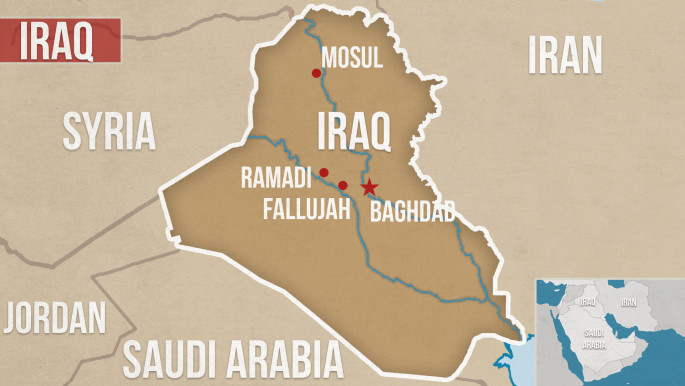Operation Fallujah: Iraqi forces flushing out last IS pockets
Iraqi forces on Thursday closed in on the last areas held by the Islamic State in northern Fallujah, officials said.
A month into a major offensive against one of the extremists' most emblematic bastions, elite forces were close to establishing full control over Fallujah.
"I can say that more than 80 percent is controlled by our forces," Lieutenant General Abdul Wahhab al-Saadi, the operation's overall commander said.
Speaking from a recently reconquered area in the north of the city, Saadi said IS fighters only retained a presence in the neighbourhood of Jolan and possibly parts of another called Al-Muallemin.
He estimated that IS only had as little as five percent of the manpower it had in those areas before Iraqi forces punched through defence lines and thrust into the city late last month.
British Army Major General Douglas Chalmers, a spokesman for the US-led coalition on Thursday said Iraqi forces had cleared 70 percent of Fallujah from IS control.
The fight to get into the city "was probably some of the fiercest I think I've probably seen," Chalmers said.
Fallujah, which lies 50 kilometres (30 miles) west of Baghdad, was the first city to fall out of government control in 2014, months before IS swept across Iraq's Sunni Arab heartland and declared its "caliphate".
 |
|
| [Click to enlarge] |
In the Shurta neighbourhood, counter-terrorism forces had taken an IS explosives workshop, stacked with dozens of homemade rockets and bomb-making material.
Welding equipment, yellow lumps of plastic explosives stored in pots of paint, bags full of detonators and old sacks of palm dates stuffed with powder were still strewn across the rooms.
While entire blocks in southern Fallujah were levelled during the height of the offensive earlier this month, substantial areas in the north of the city appeared to have escaped with relatively minor damage.
Senior counter terrorism officer Mohannad al-Tamimi said he hoped the city's tens of thousands of displaced residents could return soon.
"Just here, eight improvised explosive devices have just been dealt with," he told AFP, pointing to the road in front of Fallujah's main hospital.
"In the next few days or weeks, families should return, once their cases have been approved by the city council," he said.
According to the United Nations, around 85,000 people have been displaced since the start of the operation a month ago.
The total capture of Fallujah, which Iraqi forces say is days away, would be a significant blow to IS and further dent its claim that it is running a "caliphate".
IS has been losing ground steadily in Iraq over the past year and gradually relying more on bombing civilian targets in Baghdad or claiming spectacular attacks in the West to spread its ideology and attract more recruits.
The government said before the start of the Fallujah offensive that the percentage of Iraqi territory under jihadist control had shrunk from 40 percent two years ago to 14.
Prime Minister Haider al-Abadi, who is under intense political pressure over proposed anti-corruption reforms, has promised that the next target would be Mosul, the country's second city and the defacto IS capital in Iraq.
Iraqi forces and Kurdish Peshmerga fighters have recently revived operations to take back the town of Qayyarah, which lies around 60 kilometres (35 miles) south of Mosul on the banks of the Tigris River.
Agencies contributed to this report





 Follow the Middle East's top stories in English at The New Arab on Google News
Follow the Middle East's top stories in English at The New Arab on Google News
![Israeli forces ordered bombed Gaza's Jabalia, ordering residents to leave [Getty]](/sites/default/files/styles/image_330x185/public/2176418030.jpeg?h=a5f2f23a&itok=_YGZaP1z)

